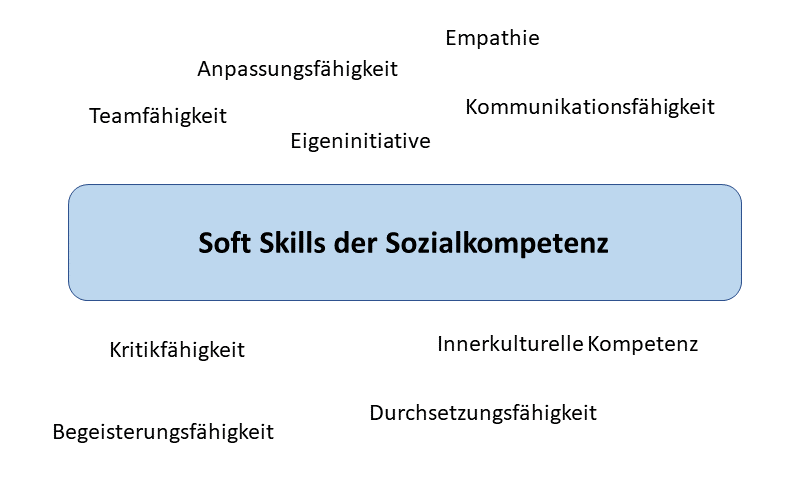Social Skills
9 Soft Skills for Interpersonal Interactions
Social Skills
Social skills is a broad term. Simply put, it includes several soft skills important for interacting with others and oneself. Being socially skilled means having the ability (competence) to behave appropriately (socially) in a group.
What Are Soft Skills?
Soft skills are traits, attitudes, behaviors, and abilities that help in dealing effectively with others.
Social Skills in the Workplace
Social skills are crucial both in personal life and at work. Employers now value social skills more than before. Those with both technical and social skills appear more team-oriented, open to criticism, reliable, eager to learn, and empathetic. The combination of technical and social skills leads to success in teams and companies.
Learning Social Skills
Parents or caregivers shape a child's character by teaching values and norms. Personal experiences also play a big role. Children need to interact with peers to develop social skills.
Every encounter with new people tests your social skills. Strangers are hard to gauge. But those with good social skills can adapt to new people and interact appropriately.
If you're unsure about your social skills, many training and development options are available today.

Key Soft Skills in Social Competence
As mentioned, many soft skills fall under social competence. The key ones are:
- Teamwork
- Communication Skills
- Assertiveness
- Empathy
- Ability to Handle Criticism
- Adaptability
- Enthusiasm
- Initiative
- Intercultural Competence
Teamwork
In the workplace, teamwork is one of the most important social skills.
Being a team player means fitting into a group, cooperating, sometimes competing, discussing, and compromising. Successful teamwork requires respect, consideration, and constructive conversations.
Communication Skills
Communicating means speaking freely and expressing oneself clearly in conversations. It also involves listening and correctly interpreting the partner's facial expressions, gestures, and articulation.
Assertiveness
Many associate assertiveness with "getting my way at all costs." But it's more about balancing assertiveness and yielding. Knowing when to assert or yield is a key social skill.
Empathy
Empathy is the willingness and ability to understand others. Empathetic people can read a partner's facial expressions and hidden emotional signals.
Ability to Handle Criticism
Those with this skill can accept constructive criticism without feeling personally attacked. They compare their self-perception with others' views, accept criticism when appropriate, and learn from mistakes.
Being able to handle criticism also means giving it constructively. It's about calmly and factually sharing your perspective with the partner.
Adaptability
Adaptable people quickly adjust to new challenges and situations. They are flexible and have a broader perspective on situations and surroundings than those less adaptable.
Enthusiasm
People with this skill are open to new things and curious. They engage with new interests passionately and wholeheartedly. They have an intrinsic motivation to learn and enthusiastically pursue new things.
Initiative
People with initiative take responsibility for their actions, work independently, and make their own decisions. They act and operate from their own drive.
Intercultural Competence
This involves accepting and dealing with people from different cultural backgrounds.
Those with intercultural competence understand and are interested in other cultures. They interact respectfully and recognize both verbal and non-verbal signals.
Conclusion
Everyone has some level of social competence. Its extent depends on upbringing and social connections.
Without social skills, it's hard to connect or communicate with others.
The good news is, you can still develop social skills as an adult. You can do this through personal motivation by reflecting on your social interactions or by enrolling in training.
